Mobile app
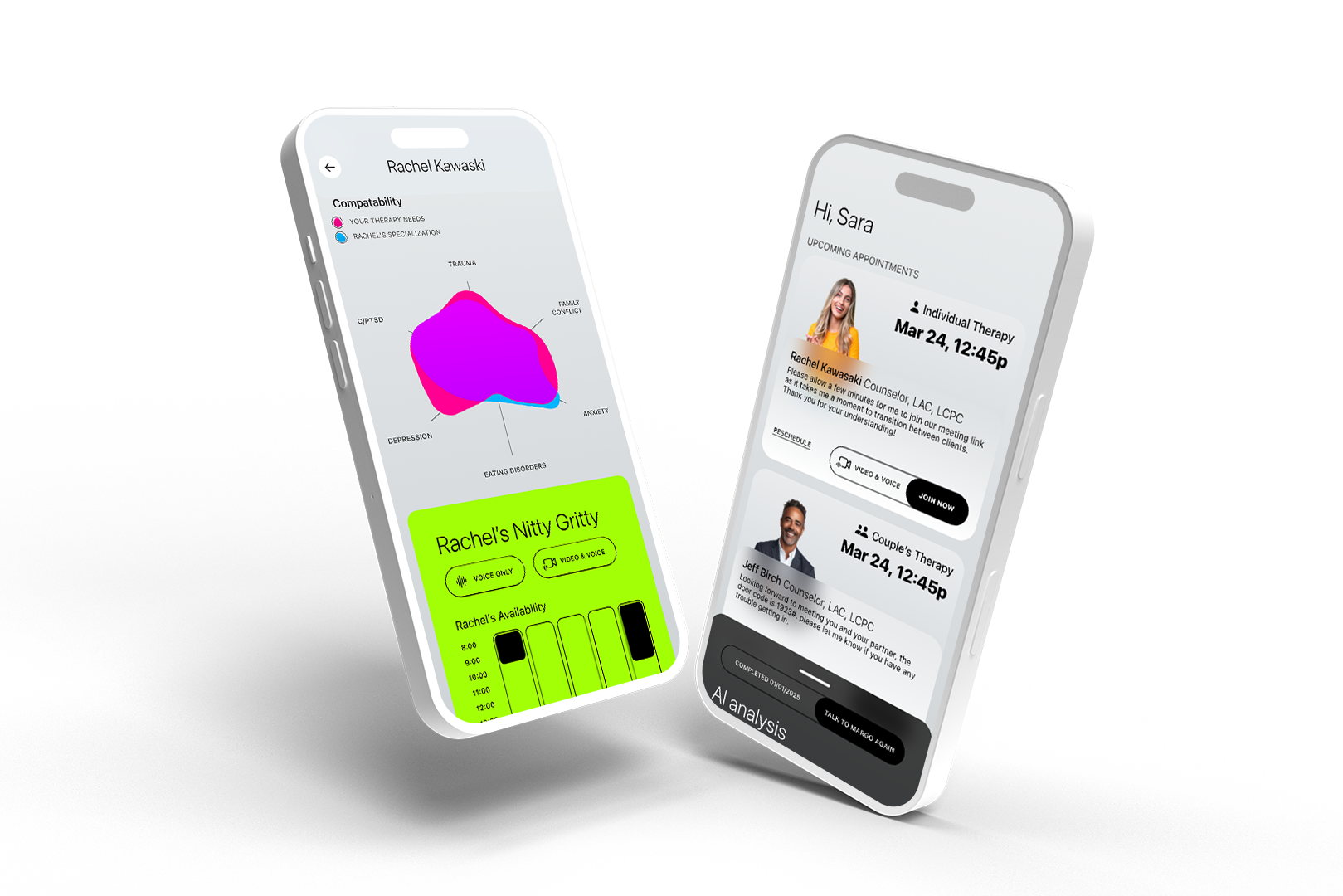
Finding a therapist on Psychology Today is like looking for a date on Craigslist
An idea that started on a very simple premise: finding a therapist should not be this hard. Sitting with a friend in her living room, we spoke at length about what it took to find a therapist for her husband when he was in a personal crisis. He had to tell his story and relive his trauma again and again, just to determine whether a therapist would be a good match. That's when I had a revelation; what if you could talk into a black box and the perfect therapist would be waiting for you on the other side?
That's what we're building - a private conversation with an AI that will match you with a therapist after learning about you. No more telling your story over and over, no more guessing whether or not a therapist can help or not. Margo Blue is about results.
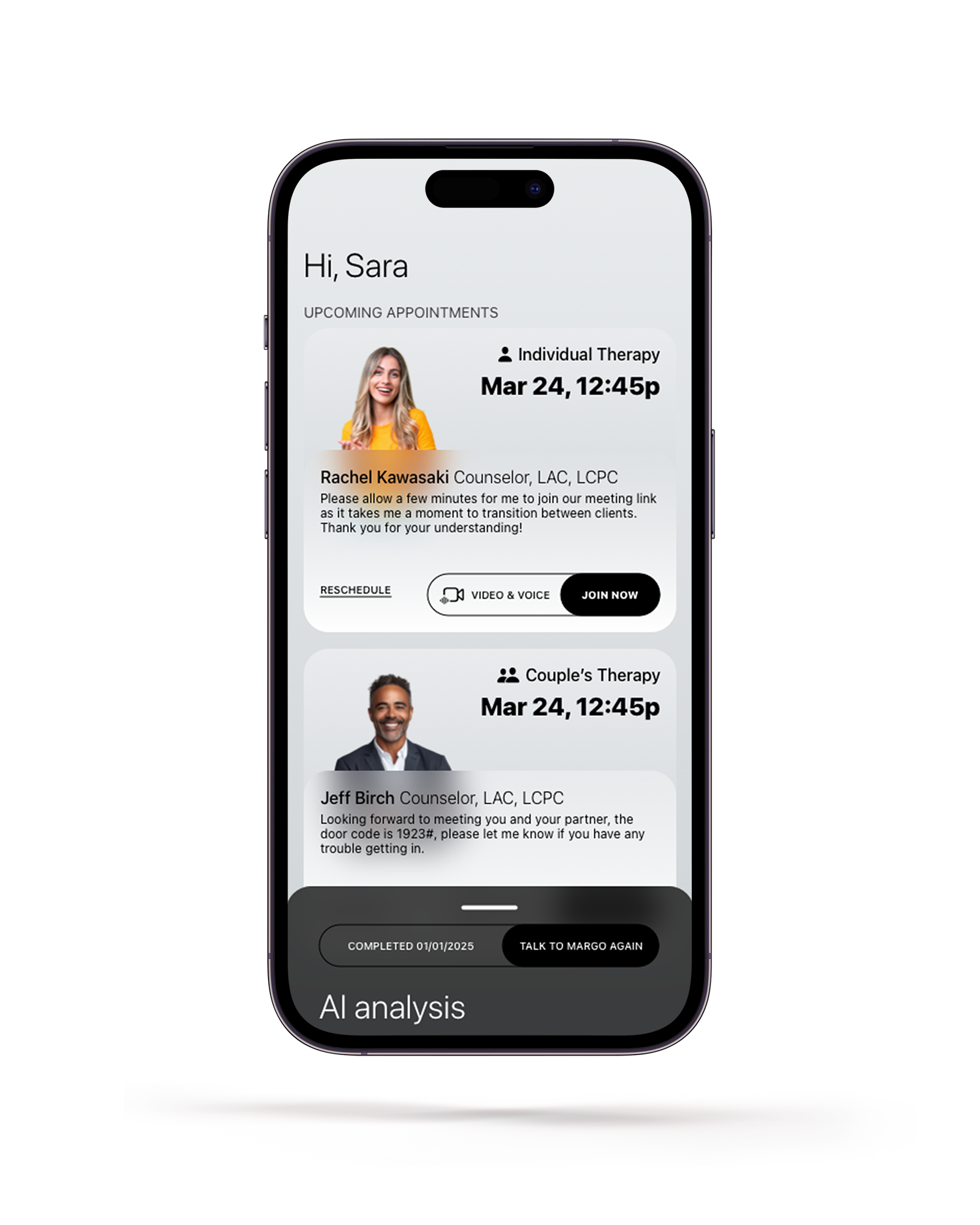
Home screen
All your therapy appointments in one place, with joining info and secure hosting.
Home screen copy
The home screen should get users where they need to go, whether that's joining a therapy session remotely or directions to a couple's therapist's office.
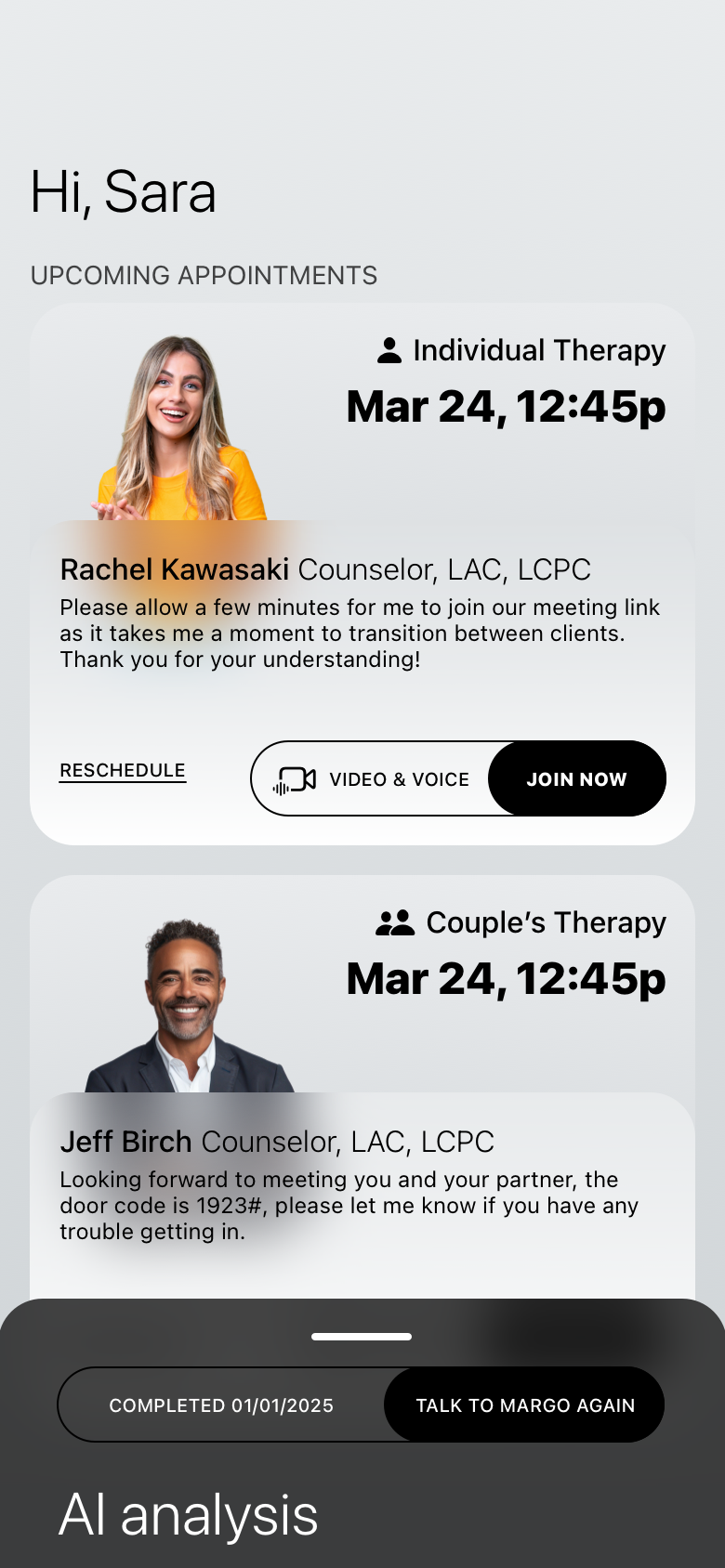
The home screen is simple and prioritizes getting patients to their appointments.

Join a session
All upcoming sessions have actionable information, including notes for the session as well as joining info if it's a remote session or directions for in-person meetings.
A useful tool for users to manage their availability, frequency of sessions, and type of meeting preferred.
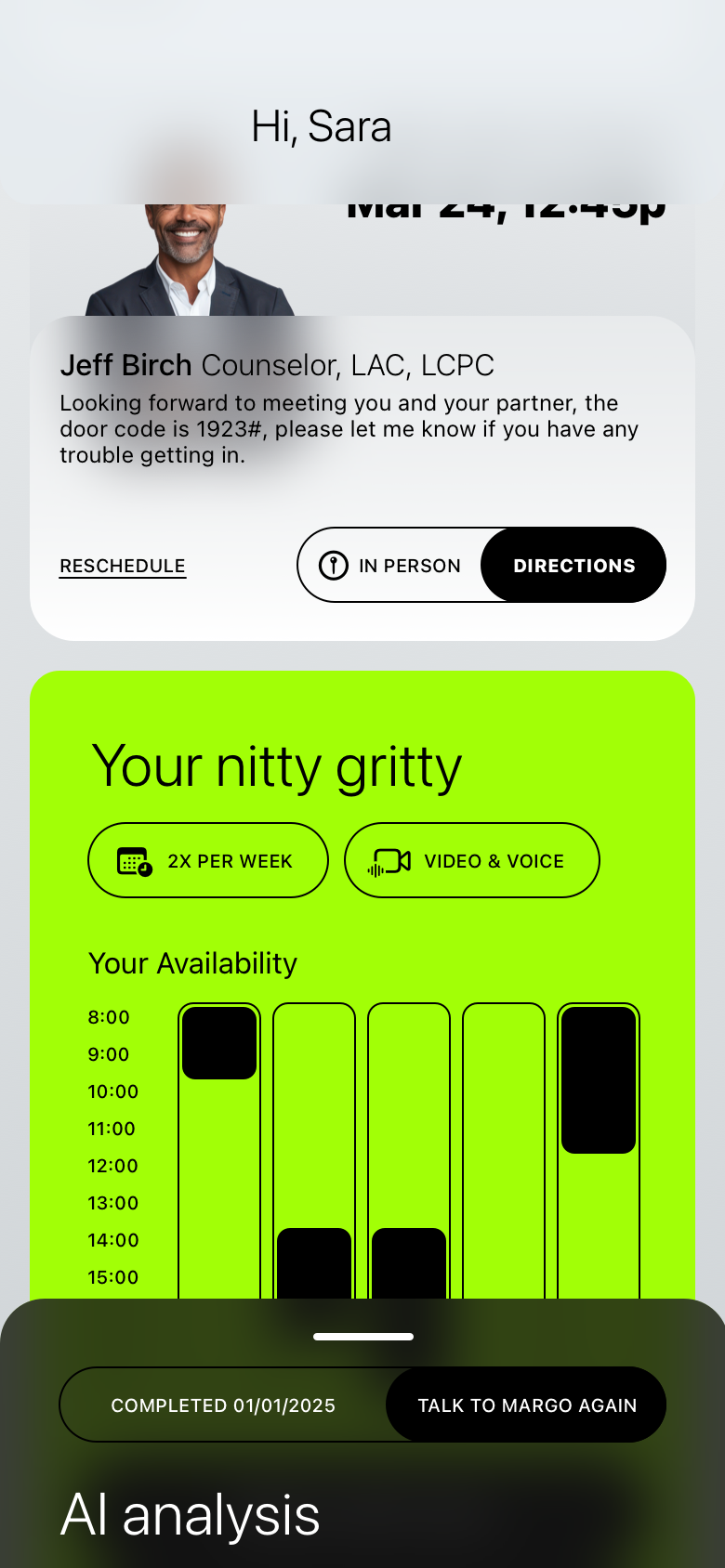
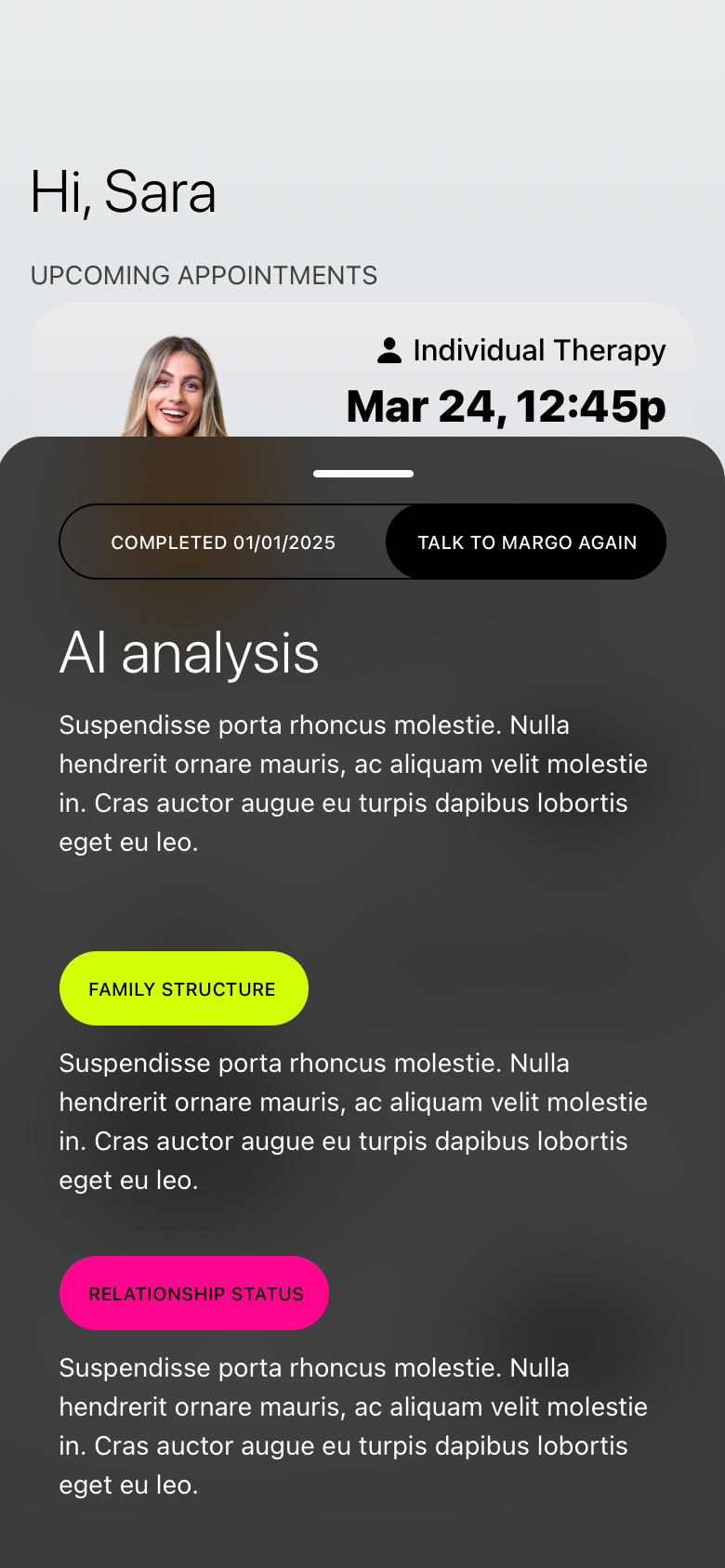
Users can talk to the Margo Blue AI any time they're ready to find a new therapist, which will modify their profile and reflect their current needs and mental state.
They can also swipe this modal up to view the assessment from the previous conversation with Margo.
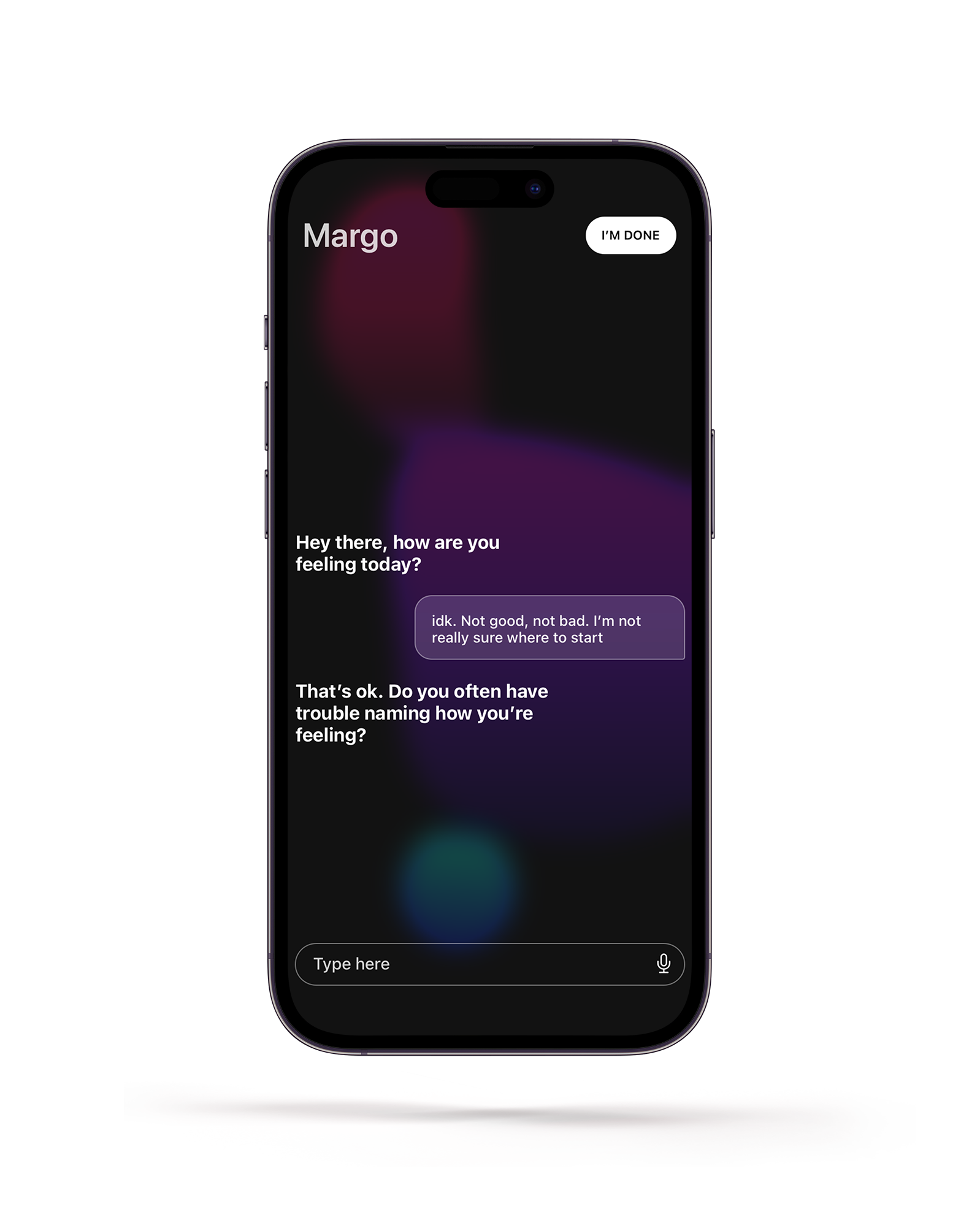
chat with margo
This is the core of the product and what everything else is built around.
Why would I want to have a conversation with a robot?
The most critical aspect of the Margo Blue chat is that users actually know and understand that they're having a conversation with an AI. My goal and hope for this feature is that, because users understand this, they will be able to speak openly and honestly without any fear of judgment, so that they can be matched with the best possible therapist for what they're experiencing.
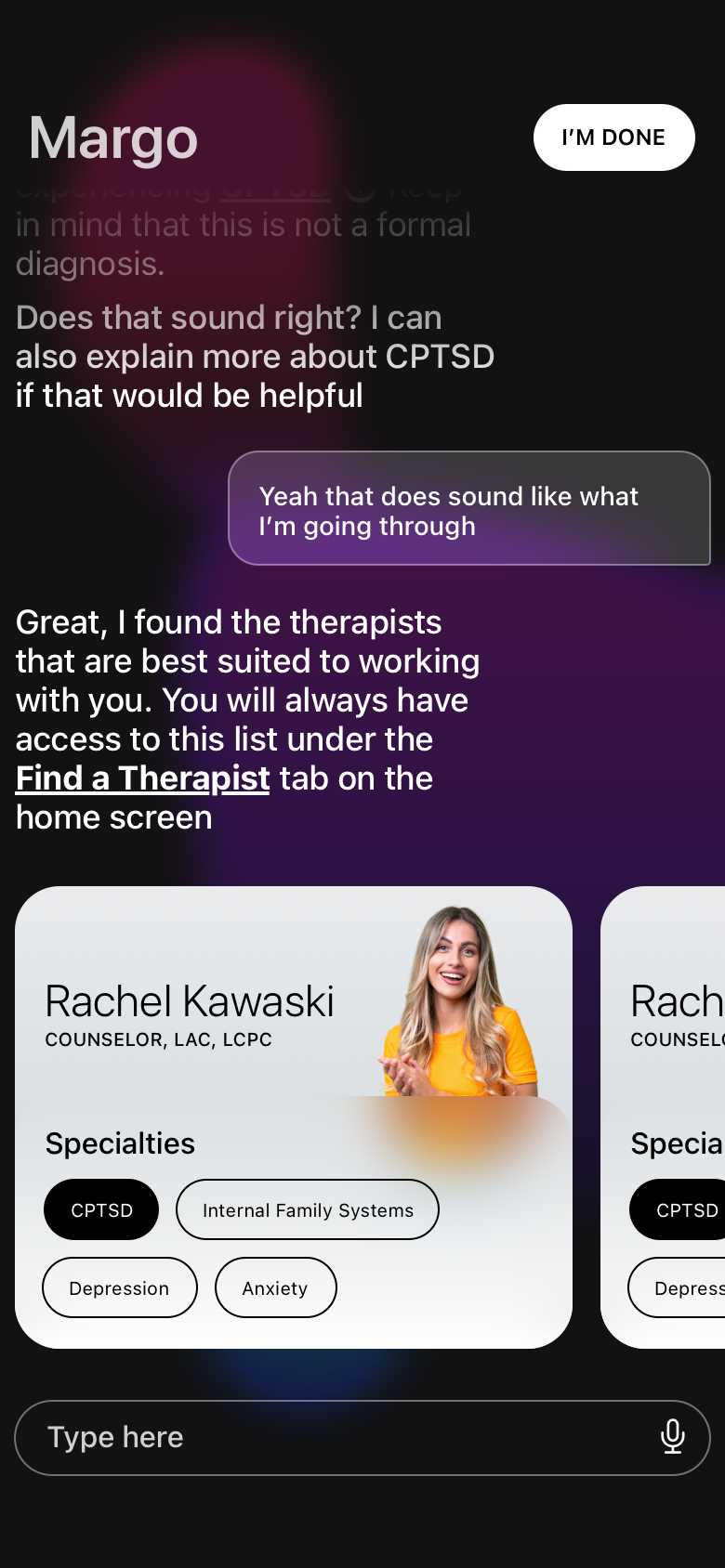
During my work on Keys and with several generations of GPT, I quickly realized that one thing generative AI excels at is empathetic language and reflective listening. It's hard to teach it how to be smooth or funny, but I was frequently taken aback by just how kind it can sound.
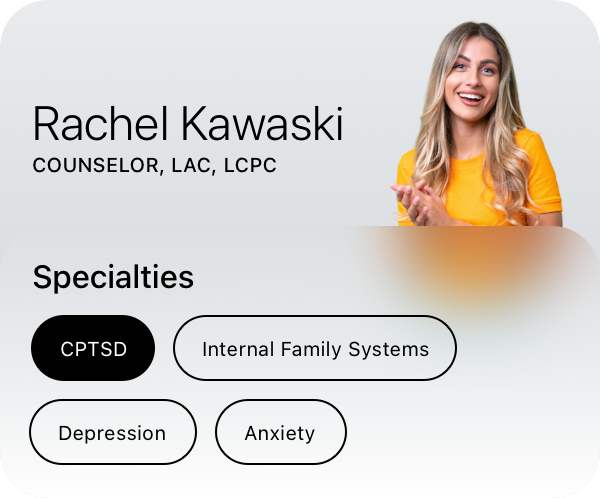
Therapists within the chat
This is in my opinion the minimum information required to know whether you want to work with a particular therapist. From here, a user can tap into these little cards to view the full therapist profile.
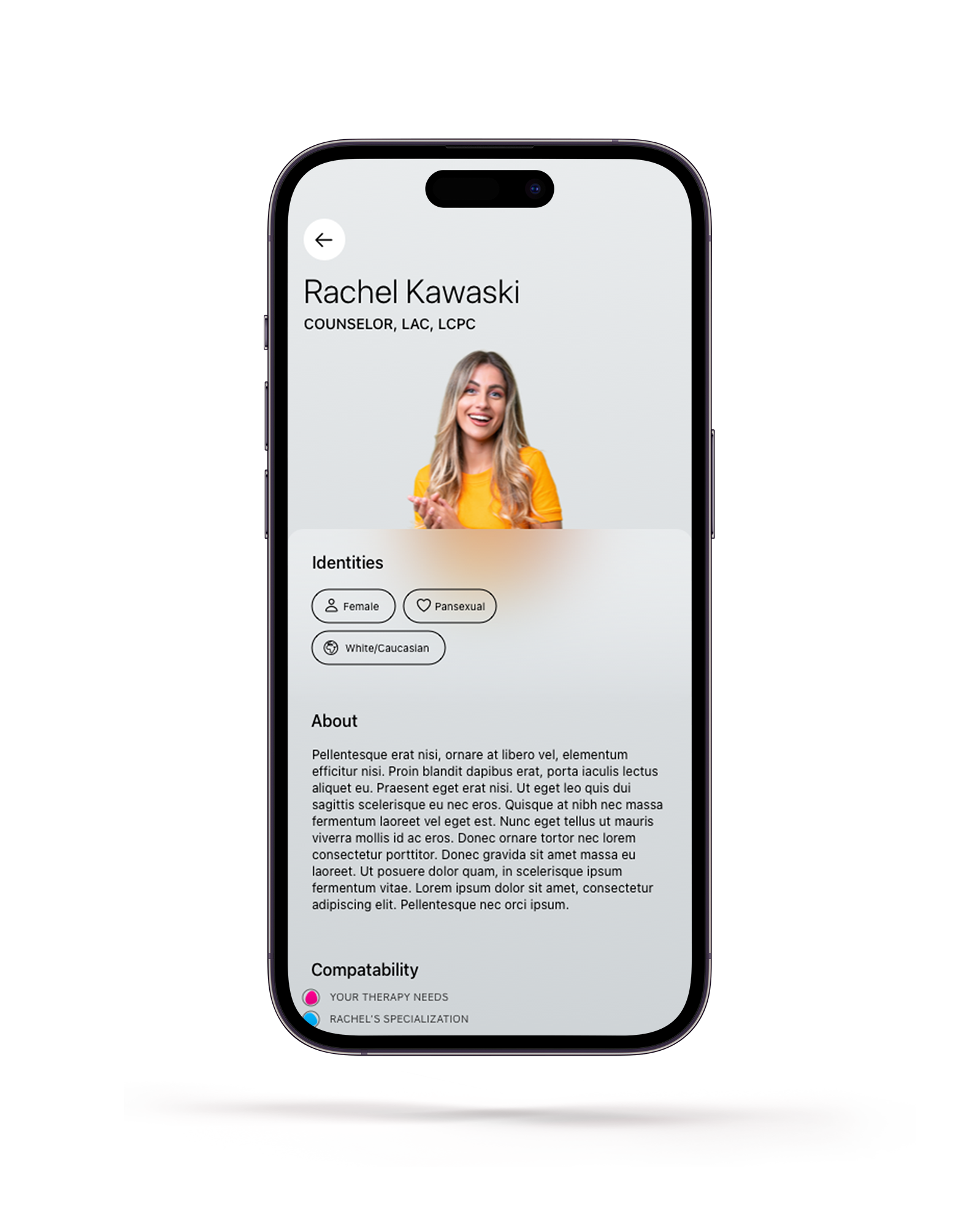
Therapist profile
If you could learn more about your therapist, what would you want to know?
Just being available is no longer enough
Since COVID, we have seen a huge surge in interest in talk therapy, and businesses have cropped up to meet the demand, including Alma and Betterhelp. But a core problem still exists; people don't want to go through multiple therapists to find one that can help, especially when they are in crisis. After a more careful matching process achieved through the chat, the next layer is therapist profiles that actually mean something, so that people can make informed choices about who they trust with their mental health.
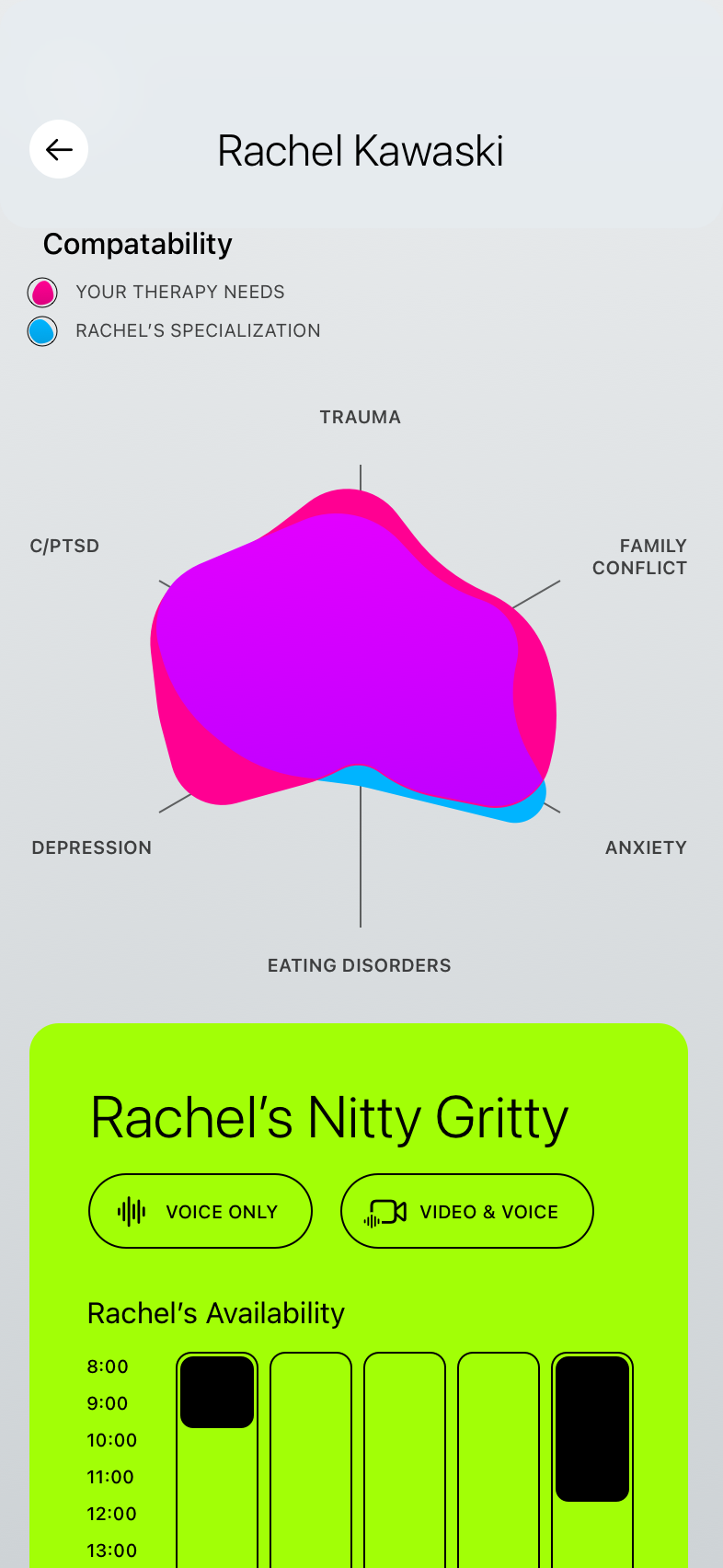
This is what scrolling down a therapist profile looks like - more information about how you as a client relate to that therapist.
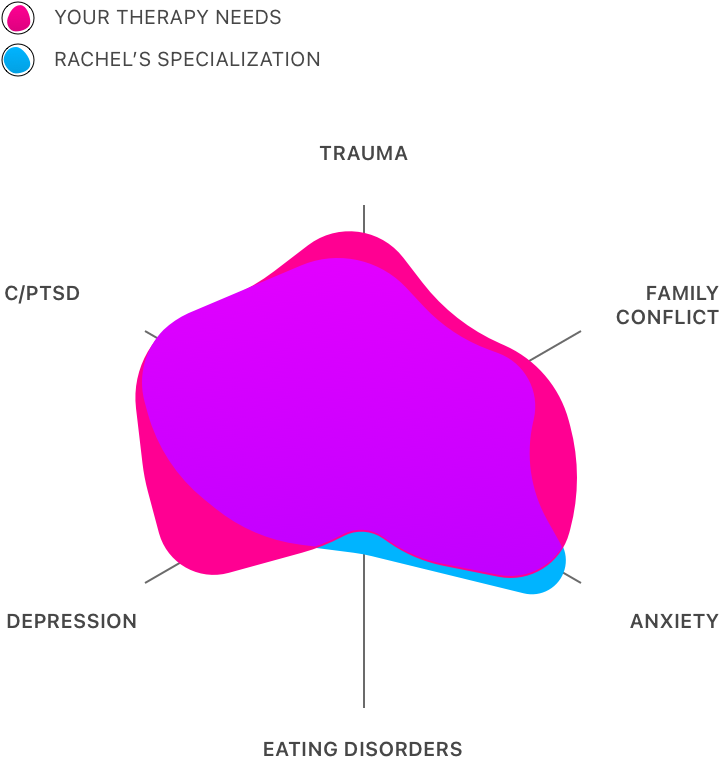
Ven Diagram Blob
This thing is fun! While this shouldn't be (and isn't) the only tool to measure your compatibility with a therapist, it is enjoyable to look at, and more than that, it helps a user feel like the process is working.